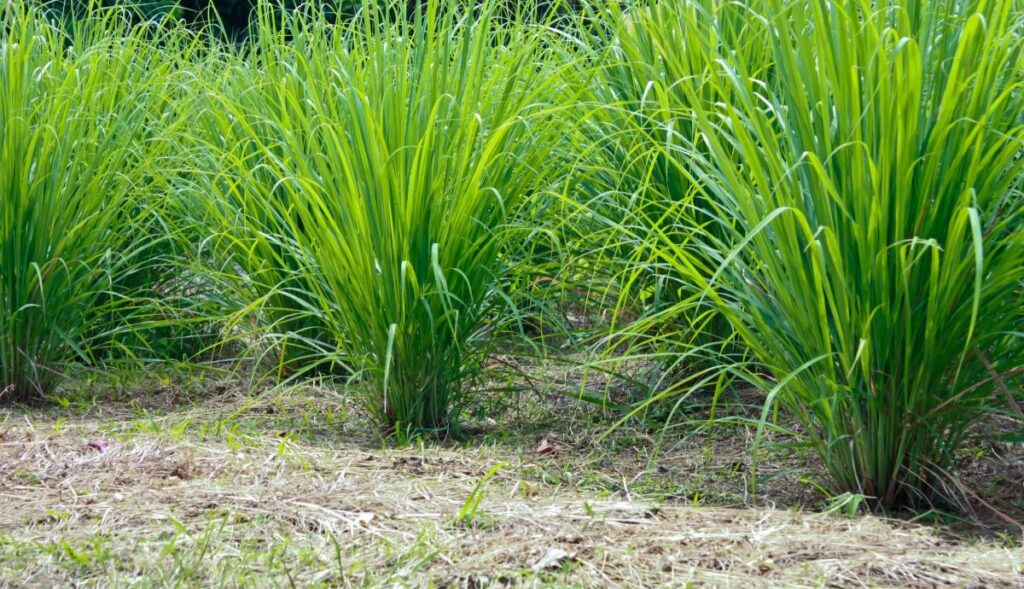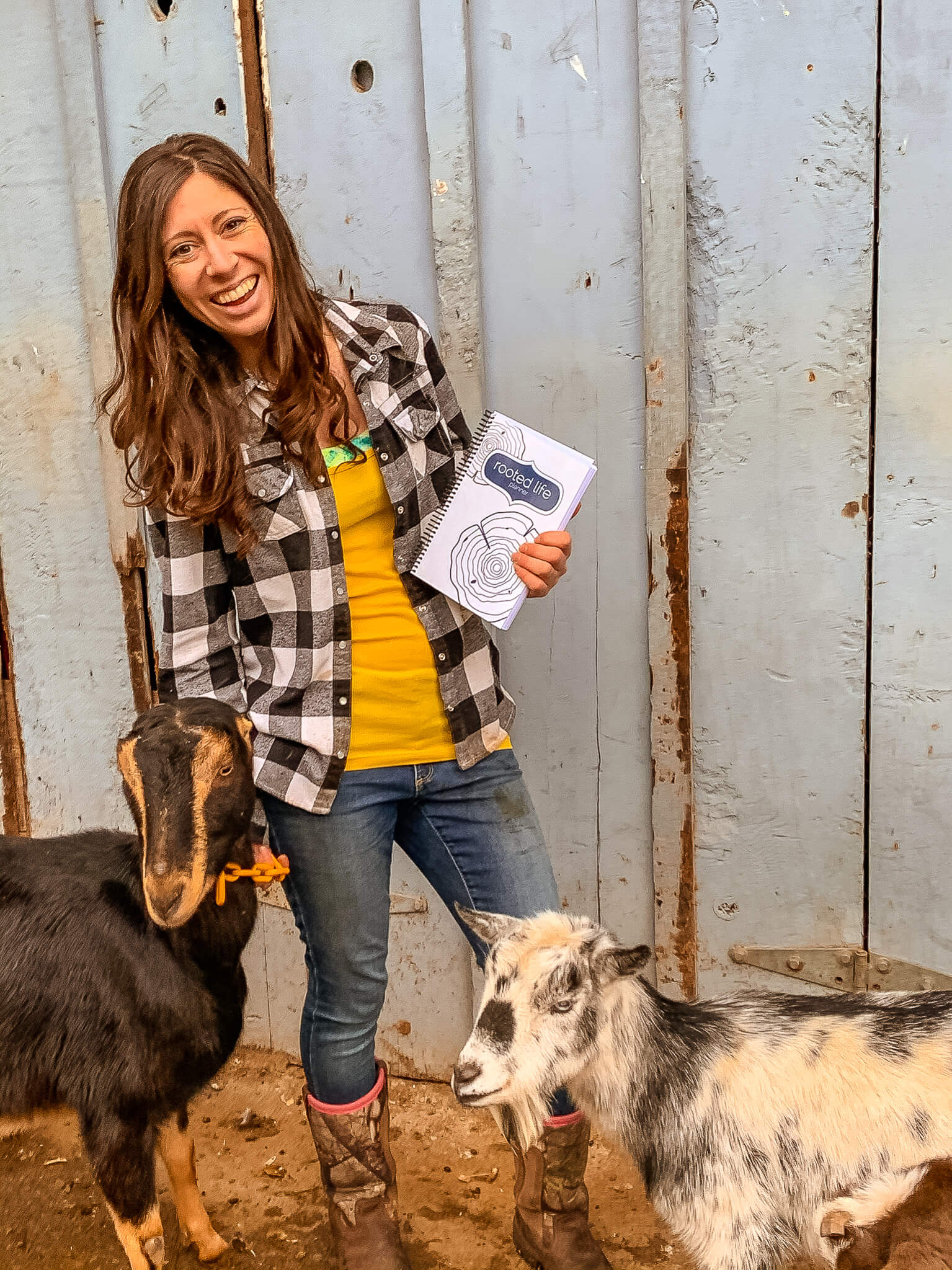If you’re not a massive fan of bugs, then there are some plants you simply have to grow in your garden to scare them away. One near the very top of the list is lemongrass.
Lemongrass repels at least six common bugs, with evidence backed up by science, including:
- Mosquitoes
- Flies
- Spiders
- Ants
- Roaches
- Fleas
In this post, I’ll take a look at:
- Each of the six common bugs that lemongrass repels
- Exactly how it repels them and why it works
- Any evidence and sources that give a good level of proof that the whole thing is definitely true!
- What else is repelled by lemongrass
- What else you can do to keep bugs away

What Bugs Does Lemongrass Repel?
1. Mosquitoes
Let’s face it – mosquitoes are literally the biggest pest in the history of mankind! They can cause all sorts of grim diseases, and their bites are just annoying as well.
Luckily, lemongrass comes to the rescue!
One study shows that lemongrass is an effective repellent against different types of mosquitoes. The secret is not in the plant itself, though.
It’s in the essential citronella oil within it. Mosquitoes usually target humans by smelling the carbon dioxide and lactic acid in their bodies.
Citronella oil helps suppress these scents, preventing mosquitoes from finding you in the first place.
Depending on the oil dosage and the type of mosquito, citronella can provide 0.8-11h of protection, with a repellency percentage of 52-85%.
2. Flies
Flies can’t stand the citral and geraniol oils in lemongrass! A 2013 study shows how effective the plant is in repelling stable flies.
Researchers provided flies with two blood sources on two pads. The catch is that they added lemongrass essential oil to one of the pads.
The results show that flies spent much more time in the area with untampered blood.
Moreover, none of the flies fed on the lemongrass-infected blood, while nine flies fed on the clear blood.
3. Spiders
Some people don’t know this, but most spiders don’t have good eyesight. They rely on other senses, like smell and touch, to find food and mating partners.
So, naturally, the punchy smell of the plant can be disturbing to spiders.
Keep in mind that neither the plant nor the oil can kill spiders. So, if you’re looking for permanent termination, you might want to try another way.

4. Ants
Lemongrass has a similar effect on ants as it does on spiders. While ants use several ways to communicate and navigate, they often use pheromone trails to navigate in complex environments.
They’re chemicals that ants release when they hunt for food to find their way back to their nests and then back to the food source again. Lemongrass or citronella oil, however, can mess with the pheromone trail’s navigational abilities.
That means ants lose their ability to return to their nests or food source. That’s why they avoid lemongrass once they smell it.
Here are the results of a Study about the movement of ants in areas that were either treated or not treated with lemongrass oil.
Basically, the study took place in an enclosure. The ants were given free roam.
Half of the surface was treated with lemongrass oil, and the other half was left alone. The researchers then studied how long the ants spent in either the treated or untreated zones. Here are the results:
| Number | Median Value | ||
| Total time (s) | Treated zone | 24 | 63.7 |
| Total Time (s) | Untreated zone | 24 | 218.4 |
| Total time spent in movement (s) | Treated zone | 24 | 22.3 |
| Total time spent in movement (s) | Untreated zone | 24 | 30.6 |
You can see that the ants spent significantly longer in the untreated zones, and tried to avoid the treated zones.
5. Roaches
A 2018 study shows that citronella oil in lemongrass has a deadly effect on German cockroaches.
The study was conducted using strains from the city of Bandung ( KRS-BDG), Jakarta
( HHB-JKT ), and the Vector Control Research Unit ( VCRU-WHO ).
Once the spiders came in contact with the oil, researchers noticed it immobilized them after only 4-6 minutes.
Not only that, but it also killed 100% of the VCRU-WHO strains after only 3 hours. 92-96% of the remaining strains were killed after 4 hours.
6. Fleas
As with spiders, citral and geraniol oils in lemongrass can mess with fleas’ senses. Coming in contact with the oil hinders fleas’ sensory abilities to find food and mates.
So, once they detect it, they immediately avoid it. While it’s an effective component in anti-flea sprays, keep in mind that lemongrass oil can’t kill fleas.
It can only overwhelm them.
Does Lemongrass Repel Other Types of Animals?
It’s not just mosquitoes and fleas. Lemongrass is effective in repelling other types of animals as well.
Snakes
Yes, a plant can repel one of the scariest reptiles in the world. Snakes have a strong sense of smell.
Experts believe that the citrus odor of lemongrass is too much for them to handle.
So, if you want to keep snakes off your property, spray lemongrass essential oil around its parameters.
Dogs
While it isn’t toxic to dogs, it’s best to keep them away from lemongrass.
Not only do they find its scent repugnant, but consuming too much of it can cause intestinal issues.
Can You Depend on the Lemongrass Plant Alone to Repel Bugs?
From what you’ve read so far, you might think that all you need to do now is plant lemongrass in your house or garden, and that’s it.
Well, that’s not entirely true.
The lemongrass plant alone isn’t enough to repel mosquitoes.
That’s because it doesn’t release enough citronella oil to keep insects away. If you’re not planning on over-filling your garden or house with lemongrass plants, you’re going to have to use a different form of lemongrass.
What’s the Best Way to Use Lemongrass to Repel Bugs?
Most methods involve combining the plant or its essential oil with other ingredients to make an effective, balanced repellent
Let’s see how you can do it.
Turn It Into a Spray
This is probably the most common way to use lemongrass as a repellent. While there are various lemongrass-based bug sprays out there, it’s better to make one yourself.
It’s easy, cheap, and you can customize it however you want.
You only need:
- a bunch of lemongrass leaves
- 2 cups of water
- Lavender or Peppermint essential oils ( optional)
Put the ingredients in a pot and boil them.
You’ll know your mixture is ready when the leaves and the water start turning yellow. Let it rest overnight, strain it, et voila!
If you want to use lemongrass oil, add 25 drops to 400 ml of distilled water.

